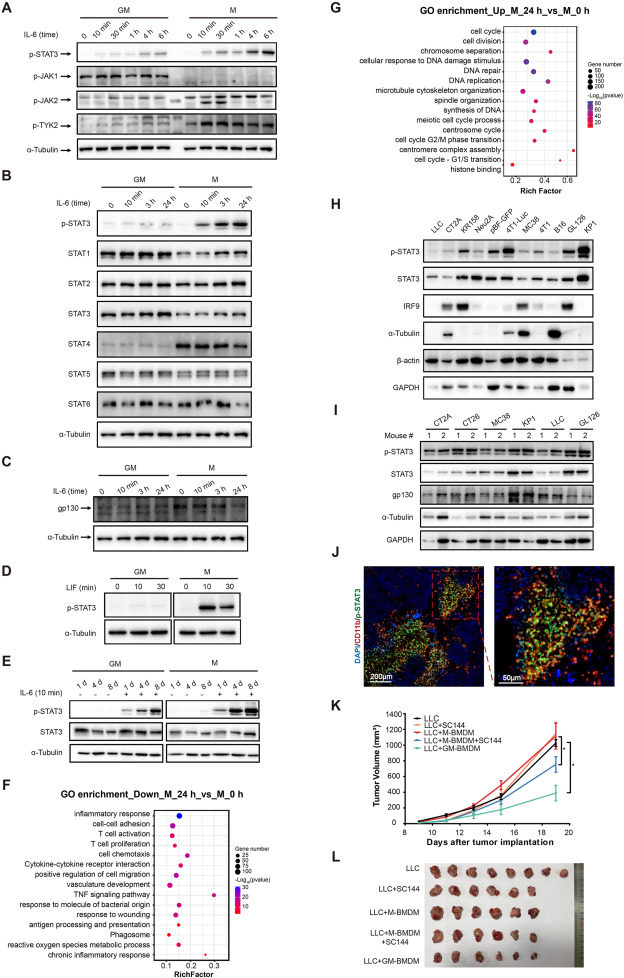
Gp130-dependent STAT3 activation in M–CSF–derived macrophages exaggerates tumor progression


Interleukin-6 (IL-6) is a common pluripotent cytokine that is highly expressed in the tumor microenvironment. The IL-6/JAK/STAT3 signaling directly promotes tumor progression, severely hampering antitumor immunity. Macrophages, the richest innate immune cells within the tumor microenvironment, manipulate tumor progression via phenotypic plasticity. Granulocyte-macrophage colony-stimulating factor (GM-CSF) and macrophage colony-stimulating factor (M-CSF) are two critical growth factors regulating macrophage differentiation and function. They play different roles during tumor development; while GM-CSF links with enhanced antitumor immunity, M-CSF is associated with M2-like phenotypes of tumor-associated macrophages. Nevertheless, the signaling response of differentially differentiated macrophages to IL-6 has not yet been elucidated. Here, we explored IL-6 downstream signaling events in two distinct macrophage populations (M1-like proinflammatory GM-CSF primed and M2-like immunosuppressive M-CSF primed bone marrow-derived macrophages, GM-BMDMs vs. M-BMDMs). We found that IL-6 preferentially induces JAK2/TYK2/STAT3 activation in M-BMDMs due to their higher glycoprotein 130 (gp130) expression. In vivo, STAT3 phosphorylation is largely present in macrophage populations within the tumor microenvironment. Importantly, the gp130 inhibitor could effectively reverse the tumor-promoting effects of M-BMDMs via IL-6/STAT3 signaling blockage, pointing to its potential therapeutic usage for tumor treatment.
